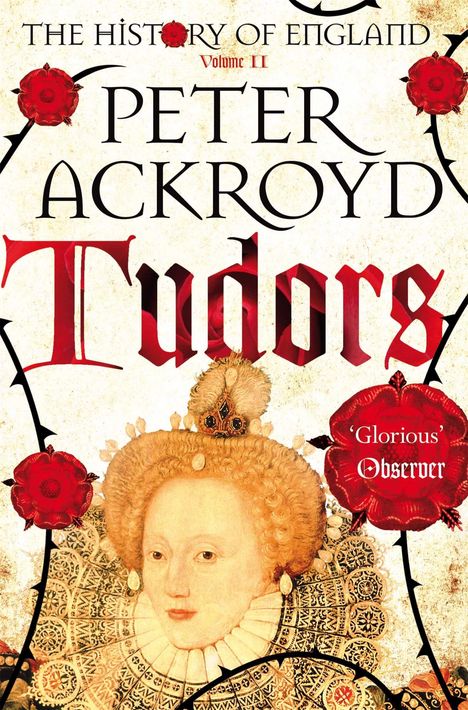Peter Ackroyd: A History of England Volume 2: Tudors, Kartoniert / Broschiert
A History of England Volume 2: Tudors
- The History of England Volume II
(soweit verfügbar beim Lieferanten)
- Verlag:
- Pan MacMillan, 07/2013
- Einband:
- Kartoniert / Broschiert
- Sprache:
- Englisch
- ISBN-13:
- 9781447236818
- Artikelnummer:
- 3494327
- Umfang:
- 544 Seiten
- Ausgabe:
- Main Market edition
- Copyright-Jahr:
- 2013
- Gewicht:
- 394 g
- Maße:
- 198 x 130 mm
- Stärke:
- 43 mm
- Erscheinungstermin:
- 4.7.2013
- Hinweis
-
Achtung: Artikel ist nicht in deutscher Sprache!
Kurzbeschreibung
The second volume of Ackroyds History of England. Rich in detail, it covers Henry VIIIs relentless search for a perfect wife and heir, how the brief rule of Edward VI gave way to Bloody Mary, and finally how the long reign of Elizabeth I finally brought stability to the land. Moreover, it tells the story of Englands transformation from a settled Catholic country to a Protestant superpower.Klappentext
Following on from Foundation, Tudors is the second volume in Peter Ackroyd's astonishing series, The History of England.
Rich in detail and atmosphere and told in vivid prose, Tudors recounts the transformation of England from a settled Catholic country to a Protestant superpower. It is the story of Henry VIII's cataclysmic break with Rome, and his relentless pursuit of both the perfect wife and the perfect heir; of how the brief reign of the teenage king, Edward VI, gave way to the violent reimposition of Catholicism and the stench of bonfires under 'Bloody Mary'. It tells, too, of the long reign of Elizabeth I, which, though marked by civil strife, plots against the queen and even an invasion force, finally brought stability.
Above all, however, it is the story of the English Reformation and the making of the Anglican Church. At the beginning of the sixteenth century, England was still largely feudal and looked to Rome for direction; at its end, it was a country where good governance was the duty of the state, not the church, and where men and women began to look to themselves for answers rather than to those who ruled them.
Biografie
Peter Ackroyd wurde 1949 in London geboren. Er studierte Literaturwissenschaft in Yale und Cambridge und arbeitete viele Jahre für den »Spectator« und die »Times«. Ackroyd ist einer der namhaftesten britischen Gegenwartsautoren («Neue Zürcher Zeitung«). Er veröffentlichte zahlreiche Romane und Biographien und erhielt den Somerset Maugham Award, den Guardian Fiction Prize und den Whitbread Award.



